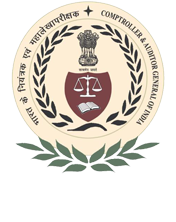Audit Reports

Scientific Department
Report No. 10 of 2011 - Performance Audit on Role of Tea Board in Tea Development in India
Overview
Tea Board of India was established in 1954 under section 4 of the Tea Act, 1953 as a statutory body under the Ministry of Commerce and Industry (MOC&I). The functions of Tea Board can be grouped into regulatory, developmental, research, marketing and promotional activities. The Tea Board has failed to discharge even its basic regulatory role effectively.More than 80 per cent of small growers in India continued to remain outside the ambit of regulations by the Tea Board. The system of inspection for regulating the activities of various stakeholders was weak and non-transparent.The Board was not able to ensure submission of business information by stakeholders so as to exercise effective control on their activities.
The increasing trend of commercially unproductive bushes which constituted 57 per cent of total bushes at the end of 2008 is a serious threat to the tea industry and unless appropriate and timely interventions are made for arresting this trend, there could be serious implications on productivity of tea.Efforts by Tea Board to increase productivity by replantation of commercially unproductive bushes were grossly inadequate and ineffective both in terms of area covered as well financial support provided. The targets for replanting/replacement planting were set very low. The backlog for replanting up to 2008 would take 149 years to clear at the present pace of implementation.Indian tea realised prices lower than the tea of other countries. This was due to its inferior quality and adverse product mix. The production of orthodox tea fell substantially below the targets set despite a subsidy scheme being in place for more than five years.
India has the highest cost of production among major tea-producing countries of the world. Tea Board failed to identify areas of cost reduction to ensure long-term sustainability for the tea industry. It undertook no major initiatives to improve labour productivity by way of training or incentivisation.Research activities were not fruitful as neither any deliverables were transferred for the use of the tea industry nor were any patents filed. The Tea Board failed to adequately support research activities by not providing sufficient funds, or adequate number of staff, nor in ensuring completion of research projects. No controls were put in place to evaluate and monitor research activities undertaken by external entities supported by Tea Board.
Download Audit Report
-
Report No. 10 of 2011 - Full Report
 (1.94 MB)
Download
(1.94 MB)
Download
-
Preface
 (0.03 MB)
Download
(0.03 MB)
Download
-
Executive Summary
 (0.04 MB)
Download
(0.04 MB)
Download
-
Chapter 1 – Introduction
 (1.08 MB)
Download
(1.08 MB)
Download
-
Chapter 2 – Scope of Audit
 (0.06 MB)
Download
(0.06 MB)
Download
-
Chapter 3 - Regulatory Activities
 (0.31 MB)
Download
(0.31 MB)
Download
-
Chapter 4 – Development of Tea: Enhancing Productivity
 (0.26 MB)
Download
(0.26 MB)
Download
-
Chapter 5 - Development of Tea: Improving Quality of Tea
 (0.10 MB)
Download
(0.10 MB)
Download
-
Chapter 6 - Development of Tea: Cost Reduction
 (0.20 MB)
Download
(0.20 MB)
Download
-
Chapter 7 - Research Activities
 (0.07 MB)
Download
(0.07 MB)
Download
-
Chapter – 8 Marketing and Promotional Activities
 (0.12 MB)
Download
(0.12 MB)
Download
-
Chapter – 9 Financial Management and internal Control
 (0.08 MB)
Download
(0.08 MB)
Download
-
Chapter – 10 Final responses of the Ministry of Commerce and Industry
 (0.06 MB)
Download
(0.06 MB)
Download
-
Chapter – 11 Conclusion
 (0.04 MB)
Download
(0.04 MB)
Download
-
Annexures
 (0.07 MB)
Download
(0.07 MB)
Download

